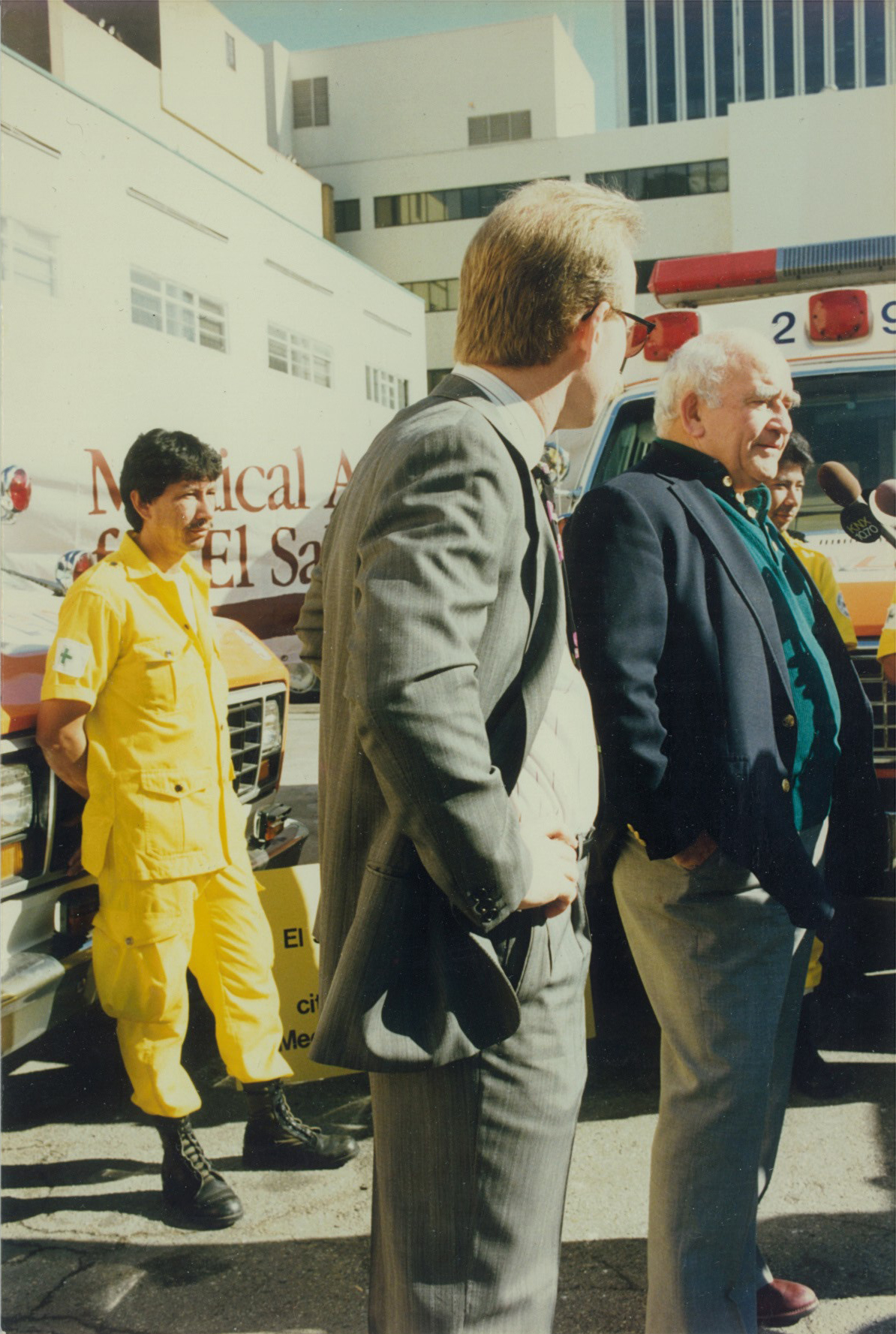In the pantheon of culture, Ed Asner’s contributions resonate like a symphony—a blending of notes that encapsulates humanity’s multifaceted experience. In considering the teachings of the Bahá’í Faith, one may find parallels between the life and character of Asner and the principles that underpin this spiritual philosophy. A eulogy for such a figure is not merely an homage, but an opportunity to explore divine attributes exemplified through his life, ultimately illuminating the Bahá’í affirmation of unity, service, and purpose.
Ed Asner, an emblem of empathy and unwavering tenacity, served not just as an actor but as a beacon of social justice. He was a man whose persona was rooted in engaging with the world’s dilemmas while simultaneously nurturing the spark of hope. This vibrancy reflects the Bahá’í principle of service to humanity, wherein the act of engaging with societal challenges becomes a means of spiritual fulfillment. Asner’s commitment to philanthropy and activism informs us that true service often manifests in the act of standing resolutely for the truth—an imperative central to Bahá’í teachings.
The Bahá’í Faith gloriously promotes the oneness of humanity, a concept that undoubtedly echoes within the fabric of Asner’s existence. In his embodiment of this principle, he portrayed characters that transcended the boundaries of race, class, and creed. Therein lies a profound metaphor: Asner as a vessel, channeling the diverse human narrative into a cohesive storyline that resonates with universality. For the Bahá’í, recognizing each individual as a reflection of the Divine encapsulates a cosmic truth, a reprieve from the confines of narrow perceptions. Asner personified this ideal, presenting a world where all are integrated into a grand tapestry of existence.
Moreover, Asner’s audacity to confront injustice correlates seamlessly with the Bahá’í emphasis on the necessity of courage and integrity in social discourse. As he navigated the complexities of fame, he remained unyielding in his moral convictions, exemplifying the Bahá’í exhortation—that one must strive to be steadfast in the face of adversity. His activism serves as a practical manifestation of the idea that individual actions can generate ripples of change, reaffirming the principle that every soul possesses the ability to impact the collective destiny of humankind.
The belief in the transformative power of love, an essential tenet of Bahá’í teachings, also surfaces in the legacy left by Asner. Love, albeit an abstract concept, is rendered palpable through actions motivated by compassion. The warmth and compassion fostered in his interactions convey a resounding message: Love is not merely an emotion; it is an active force, instrumental in nurturing relationships and forging connections. His life illustrates that everything begins and ends with love; it is the bedrock of cherished relationships and communal harmony. Such insight resonates profoundly within the Bahá’í Faith, urging adherents to manifest love in their daily lives, forging a world replete with unity.
In the realm of personal growth and self-exploration, Asner’s journey is instructive. His willingness to evolve and embrace new ideas is reminiscent of the Bahá’í ideal of continuous learning. The spirit of inquiry, fostered by the pursuit of knowledge, serves as both guiding light and an unwavering compass. In Asner, we find an embodiment of this principle—a reminder that to remain stagnant is to dim the brilliance of one’s potential. He cultivated a fierce curiosity, encouraging generational dialogues that consistently challenged dominion of ignorance. Such illumination is paramount in Bahá’í philosophy, where fostering knowledge is viewed as a pathway to enlightenment and, ultimately, a precursor to societal progress.
As we reflect on the profound lessons left to us by Ed Asner, we find ourselves enmeshed in an intricate narrative of faith, love, and service that transcends simple remembrance. These virtues serve as a conduit for understanding the Bahá’í ethos, whereby the individual’s spiritual development is intrinsically linked to their contributions to society. The notion of selfless service, an ideal long cherished within Bahá’í teachings, finds its echo in Asner’s life work, driving home the necessity for each individual to engage in acts of service for the betterment of humanity.
In conclusion, the legacy of Ed Asner is a beacon guiding us toward the practicable embodiment of Bahá’í principles. His life stands as an illustration of how one may navigate the realms of personal ambition and compassionate service, intertwining the threads that unite us all. Eulogizing such a figure necessitates an understanding that death is not an end but rather an invitation for the living to reflect upon the ideals upheld by such exemplary individuals. It is a prompt to embrace love, engage in ceaseless learning, and heed the call of service. Thus, as we honor Ed Asner’s memory, it serves as a clarion call to actualize the Bahá’í teachings—the imperative to nurture the bonds of our shared humanity and strive for the betterment of all.
